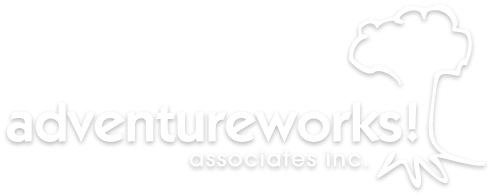Give your adventure program a mid-season check-up
/
By Kathy Haras, Ph.D.
Zip lines, giant swings, and high ropes activities are safety
critical – an error or omission of a single step can lead to a catastrophic
outcome. It is easy to think that a fatality could never happen at your camp –
you follow standards, your staff are trained, you’ve never had an incident.
Safety critical activities, however, are different; there is often no natural
built-in warning that something is about to go wrong.
Now that camp is underway,
what can Directors do?
 1) Go look that at what is happening in your adventure program. No
adverse events does not mean there are no problems. Here are some suggestions
for your observation session:
1) Go look that at what is happening in your adventure program. No
adverse events does not mean there are no problems. Here are some suggestions
for your observation session:
·
Is there adequate time? Are staff rushing to
complete the pre-use check, set-up, harnessing, or getting all the campers
through in the time allotted? Plan to stay for an entire session and arrive
before the campers arrive and stay until after campers leave.
·
Take your operations manual with you. Observe
whether staff members are following the Local Operating Procedures or whether
they have drifted from these instruction. Are staff responsible for safety critical tasks
like belaying and connecting campers to fall protection systems multi-tasking?
Examples might include responding to radio calls, simultaneously supervising
junior staff, managing camper behaviour, or preparing for other activities.
·
Are staff
responsible for safety critical tasks taking breaks, staying hydrated,
eating well, and sleeping enough? Camp is an all-hands-on-deck undertaking where
every staff member is working hard. But the safety critical nature of high
ropes course activities mean that the consequences of an error are different.
The question is whether ropes course instructors can do their job not whether
they are working under the same conditions as other staff.
2) Review your near-miss and
incident reports. Reading these reports will give you a sense of what has
happened in the recent past. Information may also be buried in program report,
daily logs, or pre-use inspection reports. Keep in mind that a lack of reported
events does not indicate a clean bill of health. Staff may be reluctant to
report, not recognize events worthy of being recorded, or may even be recording
information elsewhere until they have the opportunity to enter this information
into the official system.
3) Ask your ropes course staff questions. After you have observed what
is happening in your adventure program and reviewed the paperwork, have a
deliberate sit-down with your adventure staff. Ask:
·
Are you short of equipment?
·
Are you pressed for time?
·
Are there enough trained people?
·
Is more training required for any task?
·
How is your self-care going at camp?
·
Why did I see the things I did during my
observation session? Is that usual?
·
What would you like me to understand better
about your job?
4) Identify and develop a plan to resolve any problems. It is a
tall order to make changes in the midst of the busy camp season. Changes may
well be required – reducing the number of campers in a climbing wall session,
adding more staff to deal with camper behaviour, allocating more time to allow
for a thorough pre-use check. Don’t wait to fix a problem until the fall or
next summer.
5) Consider refresher
training for your staff. Staff may benefit from time devoted to helping
them translate the skills they acquired in training and applying those skills
when working directly with campers. A training session can also clear up
confusion about Local Operating Procedures. Adventureworks! trainers are
available to come to your site and work with your staff weekdays or weekends.
6) Consider a Program
Audit /Review. ACCT standards recommend that organizations engage in an
external review of operations at least once every five years. This focused
on-site visit and document review by an experienced professional can help you
identify hidden problems and move your adventure program forward. Contact
Adventureworks! to discuss our services.
We are here to help you have a successful summer. Please
contact us if you would like support with conducting the observation,
interviewing staff, or developing solutions.

